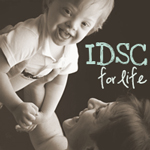This is a very interesting study! We'll see where it will go from here, in terms of turning this into something that can be used with people.
Learning and memory problems have been reversed in mice with a syndrome that mimics Down's.
Catherine Spong and colleagues at the National Institutes of Health in Bethesda, Maryland, found they could prevent developmental problems in mice engineered to have Down's syndrome by injecting their mothers with two proteins, called NAP and SAL, while they were still in the womb. This treatment would carry many risks for humans, so the team wondered whether the proteins might also help adult mice.
Spong's team engineered mice to have an extra chromosome 16, which causes similar problems to those caused by an extra chromosome 21 in humans, the trigger for Down's (see picture). The mice then had to find a submerged platform in a water maze using visual cues. Down's mice usually take twice as long to find the platform as healthy mice. However, after four days of oral treatment with NAP and SAL, the Down's mice learned to navigate the maze just as easily as normal mice.
NAP and SAL are fragments of proteins normally produced by glial cells - brain cells that provide nourishment to neurons. We know that glial cells malfunction in people with Down's. Mice treated with the proteins had markers of healthy glial function that were missing in the untreated Down's mice.
In a second experiment, the team investigated whether the treatment caused changes in chemicals known to be involved in "long-term potentiation" (LTP) - a type of brain activity key to memory formation. People and mice with Down's have decreased levels of many chemicals involved in this process. However, treated mice appeared to have increased levels of a receptor called NR2B that is responsible for initiating LTP (Obstetrics & Gynecology, DOI: 10.1097/AOG.0b013e3182051ca5). Craig Heller, co-director of Stanford University's Down Syndrome Research Center in California, says this study makes one thing clear: "Learning disabilities and mental retardations that were considered permanent are treatable."
























1 comments:
Hoping that we can get some increased funding to support this important research.
Post a Comment